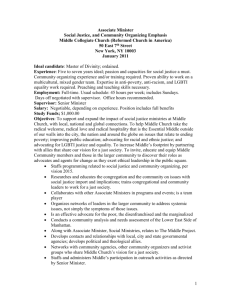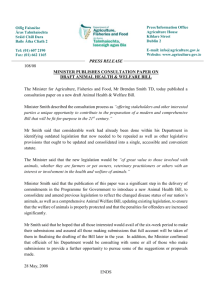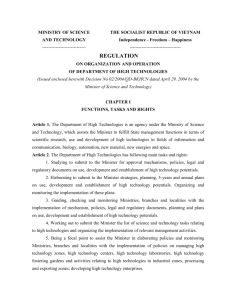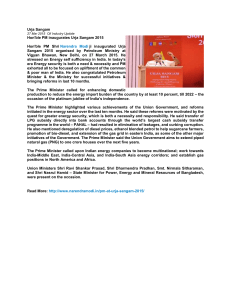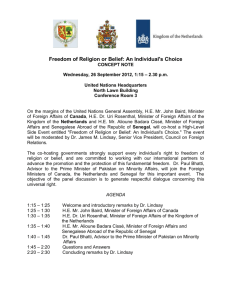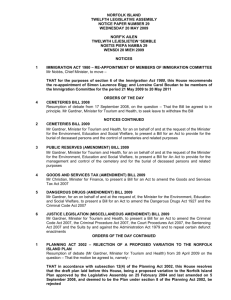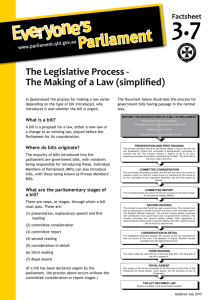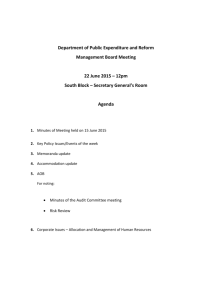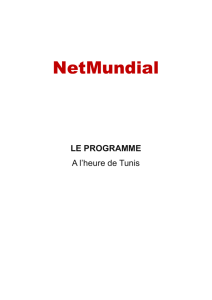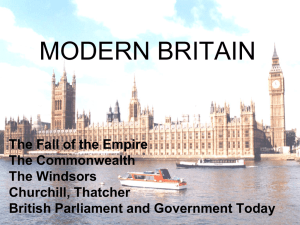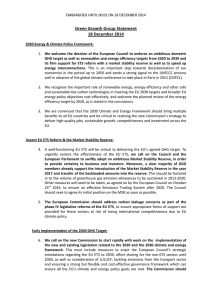Union Budget
advertisement
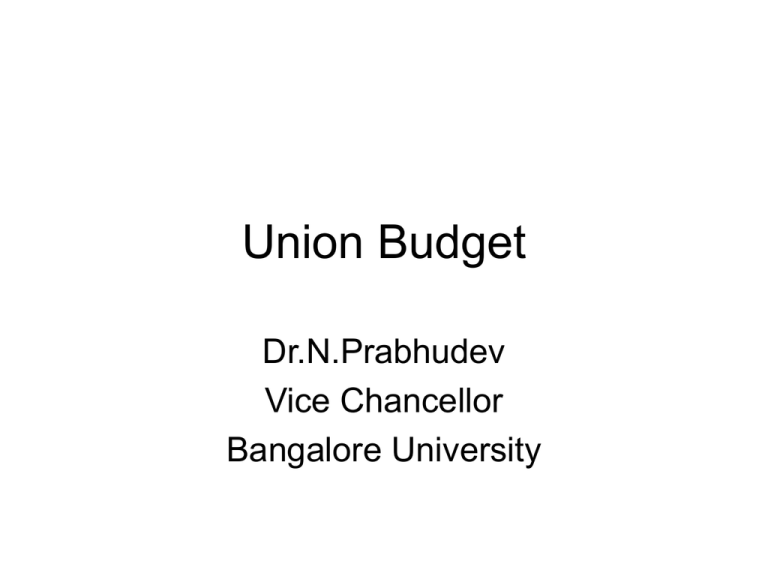
Union Budget Dr.N.Prabhudev Vice Chancellor Bangalore University Lighter Side of the Budget • God, grant me the capital to accept the things I cannot change; the reserves to change the things I can; and the Fed Auction when all that blows up. Amen. • The Obama administration will announce that 2010 will be renamed 2009, giving us another year of leeway to recover from the crisis. The move will make Obama’s poll ratings soar, as everyone would love to turn back the clock on their lives. “It’s just like daylight savings time, but in reverse,” the president will say. • Gulf News has told its journalists to avoid using the words “bailout” and “default” when writing about Dubai’s debt crisis… were also urged to steer clear of the phrase “debt crisis” and asked to “ensure the following politically correct terminology is used” — words such as “financial consolidation” and “fiscal support” — when describing the sheikdom’s economic problems didn’t get bailouts, they got fiscal support. Or, better yet, they simply experienced financial consolidation. Sounds so much better than, you know, bankruptcy. • The Union Budget of India, referred to as the Annual Financial Statement in Article 112 of the Constitution of India, is the annual budget of the Republic of India, presented each year on the last working day of February by the Finance Minister of India in Parliament. The budget has to be passed by the House before it can come into effect on April 1, the start of India's financial year. • The first Union budget of independent India was presented by R. K. Shanmukham Chetty on November 26, 1947. Until the year 2000, the Union Budget was announced at 5 pm on the last working day of the month of February. This practice was inherited from the Colonial Era, when the British Parliament would pass the budget in the noon followed by India in the evening of the day. Significance of the Budget • The Union Budget defines the nation's financial projections by the Union minister for finance for the forthcoming financial year and a financial review of the current fiscal year. However, Parliament finally decides the Budget. • The imposition of any central government taxes and distribution of government expenditure from public funds cannot be possible without an Act of Parliament, which examines and reviews all statements to ensure the proper dissemination of government expenditures. • Basically it is the Lok Sabha, the House of the People, whose approval is mandatory for the Budget to come into effect. • Proposals for taxation and expenditures can be initiated by the Council of Ministers, specifically the minister of finance. However, according to Article 112 of the Constitution of India a statement of estimated receipts and expenditure of the Government of India has to be laid before Parliament in respect to every financial year. • The month of February is upon us. Everybody looks forward to this month. But what is so special about this month? Valentine's Day of course --- and Budget. Budget is an annual exercise undertaken by the government that keeps everyone, whether rich or poor, on their toes. Here are some interesting facts about the budget that you may not be aware of: • The term budget is derived from bowgette. The term bowgette in turn was derived from the Middle French word bougette. It is an abbreviated form of bouge, denoting a leather bag. • C.D. Deshmukh was the first Governor of RBI who also became the finance minister. He first introduced the budget in Hindi in 1955-56. • Morarji Desai holds the record for presenting the highest number of budgets - 10, of these 8 were annual ones and 2 were interim ones. After Desai's resignation, Indira Gandhi, the then Prime Minister of India, took over the Ministry of Finance to become the only woman to hold the post of the finance minister. • In between his 2 stints, T.T. Krishnamachari was again elected as the finance minister. • He was responsible for introducing voluntary disclosure scheme that would enable people to disclose their hidden wealth. It was supposed to be one time measure but has become a permanent fixture today • But when Dr. Manmohan Singh took over as finance minister, the focus shifted to liberalization and making India global economic power. He started the process of government disinvestment that is still continuing even today. Budget Review from a Layman’s Perspective • Before handing over the podium to the experts for their informed analysis of the budget, I would like to provide a brief review of the positive aspects of this budget from a layman’s perspective: • By far the most attractive aspect in the Budget 2010 for individuals is the increase in the income tax slab limits. Though the entry level slab for income tax has not been changed from Rs 1.6 lakh, there is a considerable jump in the other slabs. A majority of income tax payers in the middle class and upper middle class have a lot to cheer from the Union Budget 2010. • Many people tend to complain that the documentation involved in the tax filing process is lengthy and cumbersome. On the paperwork front, there is some cheer as the finance minister has said that a two page SARAL-2 is ready and will simplify the process of filing our returns. • A renewed push has been given to the New Pension Scheme in this Budget. Our finance minister has proposed to give Rs 1,000 as a starting incentive to all accounts of NPS opening in the next three years. This is a welcome measure, as the NPS is as of now the key Contributory Social Security Scheme in India. • The finance minister has said that the interest support of 1% for low-cost housing loans will be extended for the next year too. This is a boon for the builders of townships and also the aam aadmi of India who could not afford costly houses. This is a direct form of supporting the recovery of the economy itself. • With a keen focus on the GST, the service tax rates have been retained at 10%. Thus prices in the service sector do not seem to be facing any hike. • Lastly, the finance minister has also given an additional deduction of Rs 20,000 for any investments in Infrastructure bonds. Meaning we could even save up to 10 per cent of our income in case we are in the lower end of any of the slabs by putting our money into the development of infrastructure of the country. • There is a large focus given to developing infrastructure in the country. Over 40% of the total outlay has been given towards developing infrastructure. This added with the deduction to investments in infrastructure bonds will surely help us see better infrastructure in the coming years. • However, there are quite a few drawbacks such as the increase in customs and excise duties, increase in fuel prices all leading to potential inflationary issues in the budget which will no doubt be dealt with in detail by the experts. • THANK YOU!


